10 Things Decorators Want You to Know About What They Do
http://decor-ideas.org 09/14/2013 15:30 Decor Ideas
Are you curious about what decorators do? Ever wonder where those fees go, what they do all day or how they come up with fresh ideas? Read on for answers from three professional interior decorators who offer their take on the job, working with clients and the behind-the-scenes work they do that most of us never see.
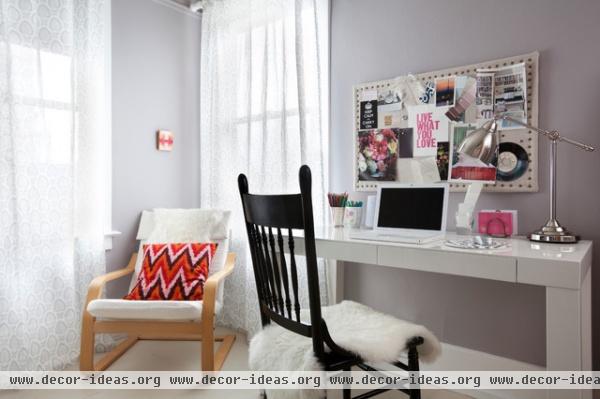
What do decorators do?
Decorators work with furniture, "soft" furnishings like fabrics and rugs, accessories and colors to pull together a room or an entire house. All decorating jobs begin with a conversation between you and your decorator.
This is when you can discuss style and color preferences, budget and the scope of your project. You might hire a decorator for a one-day consultation to get ideas you can then implement yourself — or work with a decorator to complete a project from start to finish.
Your decorator may create mood boards, go shopping, transport and install furniture and accessories, choose paint colors and fabrics, create a new furniture layout, or even get in there and move furniture.
1. Communication is key. If you were under the impression that hiring a decorator would be the last decorating decision you need to make, think again. While a decorator is there to facilitate the process, it is still your home, and your input is invaluable.
San Francisco Bay Area decorator Maggie Morgan of Maggie Rose Interiors says, "I wish I could read minds ... but I don't. The best designs come from open communication about likes, dislikes and full understanding of a client's needs. Pictures and examples are even better! I love when clients have put some thought into the space before I come over and can describe where they're getting stuck."
Browse more than 2 million design photos
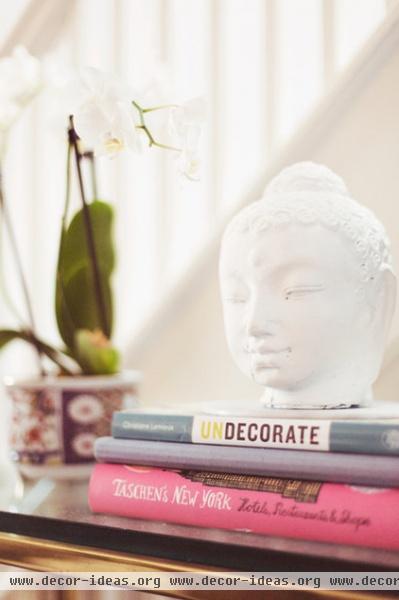
2. It's about more than choosing furniture and fabrics. Your home should reflect who you are, beyond your taste in throw pillows — your hobbies, passions, direction in life and more. A good decorator should be able to pull out these details and work them into their final vision for your home.
Toronto, Ontario, decorator Laura Collins of Laura Collins Design says, "I am a part-time therapist! Part of my job, beyond all of the pretty aesthetic details, is getting to know you. Understanding your core and what you like or dislike.
"Within minutes of meeting clients, I am often given a breakdown of the clients' life. As we know, people's surroundings, especially one's home, is a very intimate part of life — intimate details are often shared. This also really helps when considering the direction of the project, when you know more personal details."
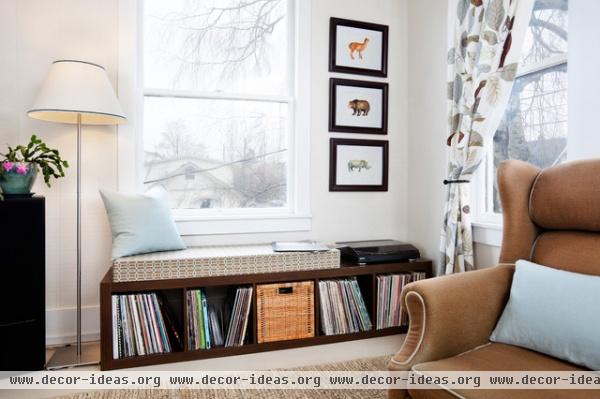
3. Your budget will be respected. One of the biggest misconceptions about decorators is that by hiring one you are kissing your budget goodbye. That couldn't be farther from the truth. Be honest and realistic about finances from the get-go with your decorator for the best results.
From Maggie Rose Interiors: "I don't blow your budget. The number I'm given is the number I use, and I'm respectful that my clients want to stay within a certain range. I will make the most of your budget. However, I also won't work with a budget that is too small or unrealistic for the client's goals. No one is happy at the end of that scenario.
"I talk with my clients about their expectations and what they have to spend. $10,000 goes a lot farther in a room that is furnished but needs accessories, than it does in an empty room that needs everything. We talk about ways to save and where to splurge. I also have to keep in mind labor (painters, etc.), tax, shipping and delivery fees, storage, and even small things like curtain hardware."
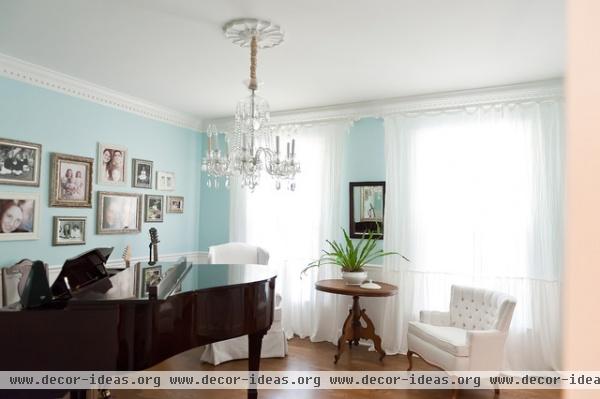
Curious about how decorators charge? Morgan says, "My hourly rate for consultations is $150, but most projects I quote by job. I factor in the estimated number of pieces I'll be sourcing, how much of it will be custom made, whether construction is involved, if I'll be managing the installation of pieces, and an estimate of hours it'll take. All of this happens at the beginning of a project, and helps me write up our contract of services. If a client has a small budget, I'll recommend my two- or four-hour consultations."
"I currently charge new clients $295 for the first 2 hours of design or color consultation." says Nashville, Tennessee, decorator Kristie Barnett, aka The Decorologist.
"I provide tons of ideas in that first 2 hours — my clients are typically scrambling to take notes about everything I suggest. After that, it's $95 per hour until their project is completed. The fee is the same for onsite work, research, shopping, whatever.
"One of my goals is helping my client prioritize their needs and wants so that they are spending their money in the right places, and on things that will really be bang-for-their-buck. I find that I often talk people out of buying expensive items that ultimately wouldn't be the right thing for their space and providing them wiser alternatives. Many of my clients later brag about how much money I've saved them."
Laura Collins Design also has a set rate but gives her clients an estimate of additional costs — "I charge $150 per consultation and $150 per design board per room; plus additional costs to shop for clients apply depending on the situation."
These three examples should give you a big-picture view of what decorators may charge, but also bear in mind that rates vary across the country, from decorator to decorator, and also depend on the scope of your project.
Find typical costs for room decor and furnishings by region
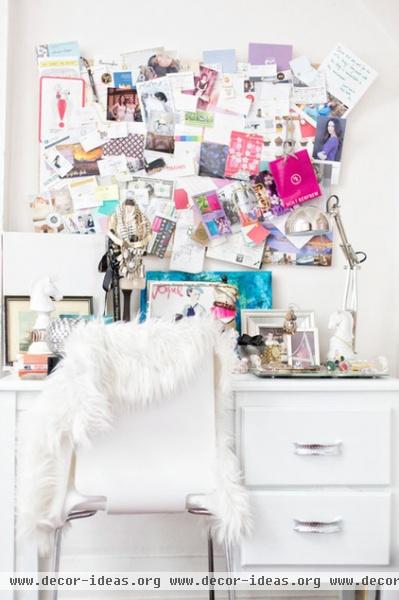
4. We do lots of unglamorous, behind-the-scenes work. Being a decorator sounds like a fun job, and most decorators would agree, but not all parts of the job are pleasant.
Laura Collins Design has this to say: "It ain't all glam! You have heard it all before, but I will say it again: While there are many fun elements such as looking for textiles, styling and shopping, the down side is the schlepping, driving from one place to another tirelessly, and of course billing. That is often the nature of the beast. I think after you have completed a really good job and you are able to see a tangible result, it is totally worth it."
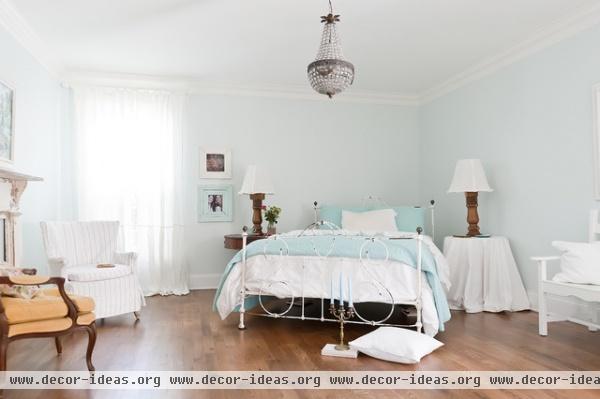
5. It's physical work. Beyond shopping, styling, running errands, and driving, most decorators do a lot of heavy lifting. A typical day could see your decorator hauling furniture, painting, hammering and tackling other chores more often associated with construction workers.
The Decorologist shares, "It's not as glamorous as you imagine that it is. I lift and move furniture, haul merchandise from stores for clients, put myself in precarious positions to hang art perfectly (I fell down someone's stairs just last week), and sweat a lot. I've lost toenails and hammered my fingers and thumbs many, many times."
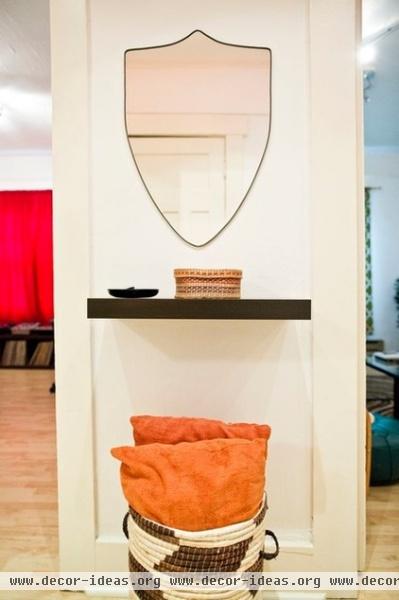
6. We keep the whole picture in mind. Part of the reason you may want to hire a decorator is for his or her ability to see how each decorating decision, no matter how small, effects everything else.
From Maggie Rose Interiors: "I do choose each and every item carefully. My decisions are based on scale, texture, color, shape, price and how those elements balance with other items in the design. How it all plays together is key in a well-designed room."
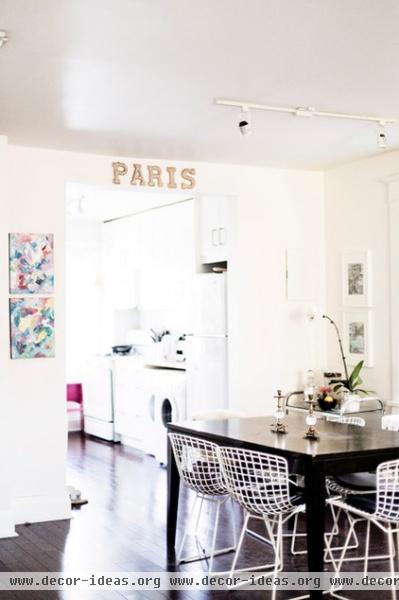
7. We are always "on." Where do decorators find inspiration and new ideas? Everywhere. Unlike some professions where you can hit the "off" switch as soon as you leave work, decorators are spying finds and color schemes wherever they go and are bubbling with ideas 24/7.
From Laura Collins Design: "I am always searching for inspiration wherever I go. Whether it be to another continent to discover a new way of life, a runway show, a movie, or walking into a retail store, I am always taking mental notes. I love an eclectic space, so I am always marrying ideas in my head hoping for an opportunity to bring them to life in a client's home! If I find a piece I love, I will try to figure out how to incorporate it into a project and work it into the design scheme."
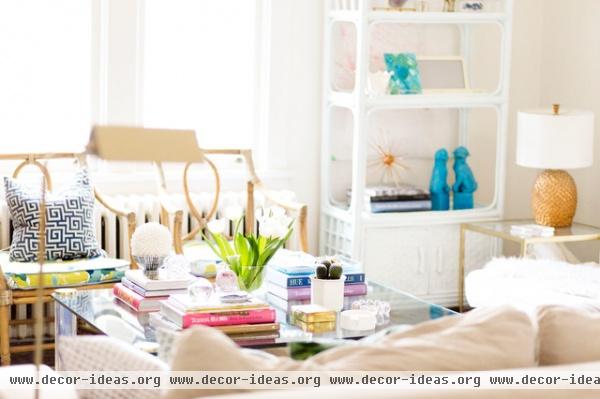
8. We want you to bring your style to the table — and then trust us to run with it. Decorators welcome strong points of view, so if you know what you love, don't be afraid to say what you think. But if you've hired a decorator, remember that you did it for a reason — so once you know they are in touch with your style, let them have the creative freedom to do something amazing with it.
From Laura Collins Design: "As decorators, we are often credited with being the full visionary of the projects we are working on. However, my favorite clients have been the ones with fearless style, or at least an amount of trust that will allow some creative freedom. It amazes me how many people I have worked with who really have to be walked through each decision. I am decisive, and once I have an idea I run with it, so it is a challenge when each item is up for discussion. When you have a client that trusts your creative authority, the job is not only fun, but the collaborative process is often even more amazing as an end result!"
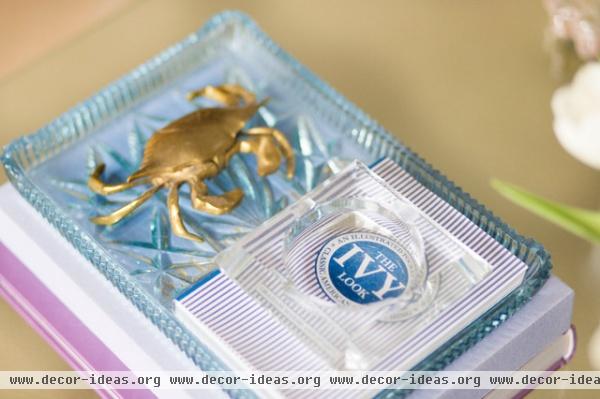
9. Creative work is time consuming. For those not in a creative field, it may be hard to understand, but coming up with an original, creative design is an incredibly time-consuming — and sometimes unpredictable — process.
Laura Collins Design shares, "As much as I love my job, starting out in this industry, especially when you are trying to do it solo, is tough! Until you are able to establish a clientele, it may be very trying. One important thing I have learned is not to undervalue the work that goes into this job. I think there is a fear among creatives that we need to take whatever we think people will compensate us for without losing a potential client — meaning really undervaluing our services.
"It is easy to undercut the creative process because we want to make sure we receive payment in the end. I think it is very important though to consider how much time is put into the projects we create. People assume that because it is within a creative field that the work load isn't as time consuming or strenuous, but the effort and time spent is just as enduring. I happen to really love design, to feel someone appreciate the value of your knowledge and creative direction truly makes all of the difference."
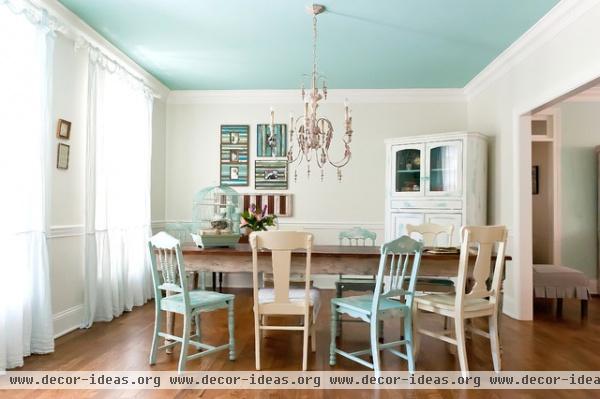
10. We work many hours that don't make it onto the bill. From doing research and keeping up with new trends to updating social media, a lot goes into running a decorating business that can never be billed for. Like most entrepreneurs, decorators tend to work way more than 40 hours per week.
The Decorologist has this to say: "Even though some might think my hourly fee is high, they don't realize all the hours that you don't get paid for. One lady said to me, "It must be nice to get paid so much for so little time." The truth is I work many, many hours that I am not paid for. It's not a 9-to-5 where you punch a clock and know what you are going to make every week. I typically work 70-plus hours a week on my business, but I may only be paid for 15-20 hours of that.
"I do tons of research to stay current and on-trend, and to learn about new colors and products. I have to spend time and money making up color samples, attending training and workshops, as well as handling my books and billing. I pay an assistant to handle scheduling and returning emails, which used to take me 15-20 hours a week. Then there's marketing and generating business — when you are your own boss, YOU are the one that has to bring business in. I spend many hours a week blogging, writing for publications and doing social media to keep the engine running and the clients coming. Even though it seems like a designer makes a lot of money, if you compared it to a guaranteed 40-hour-per-week salary you might see things differently."
More: Find a decorator near you
Related Articles Recommended












